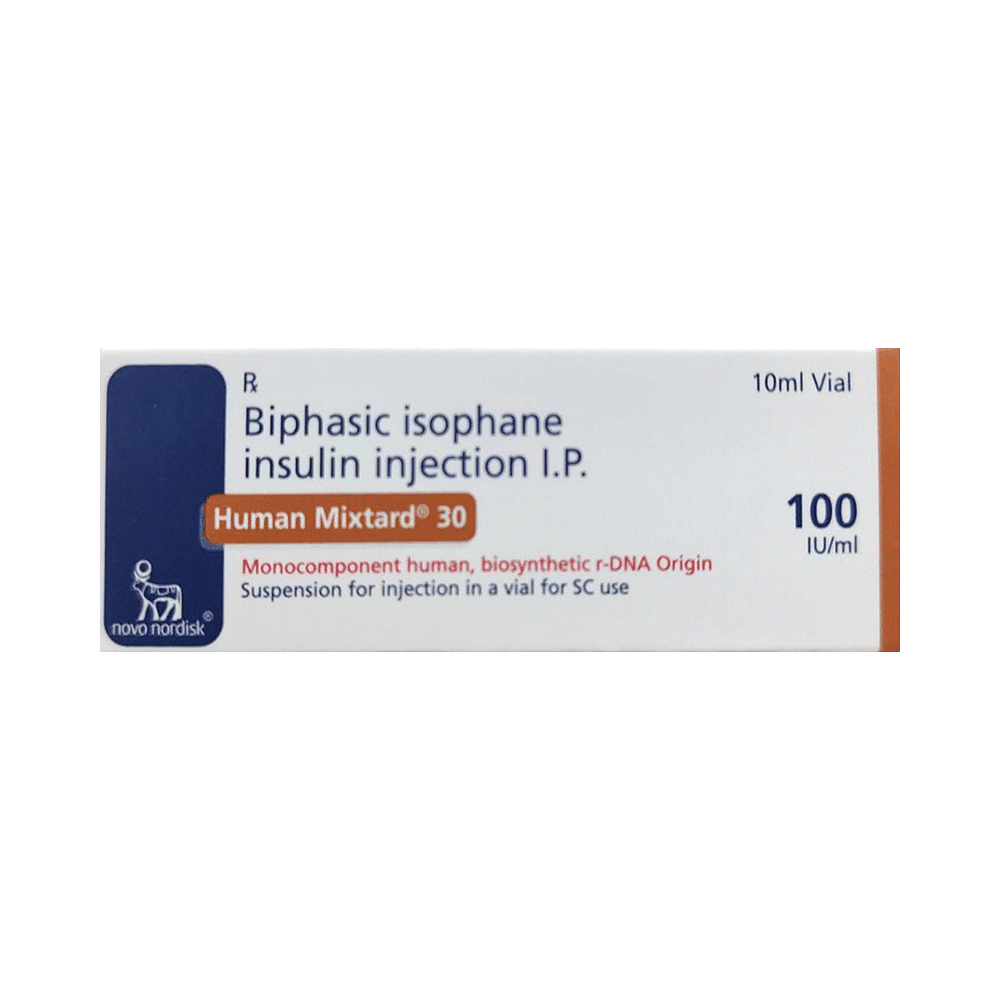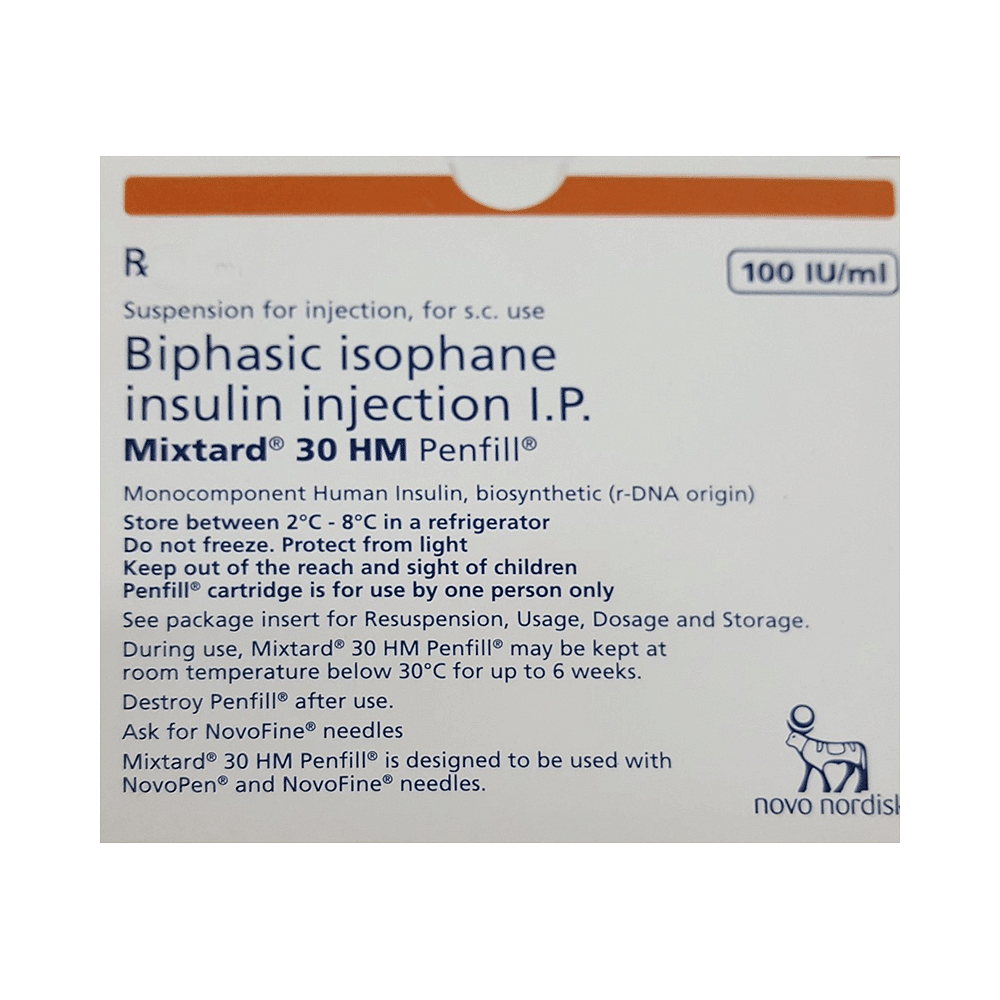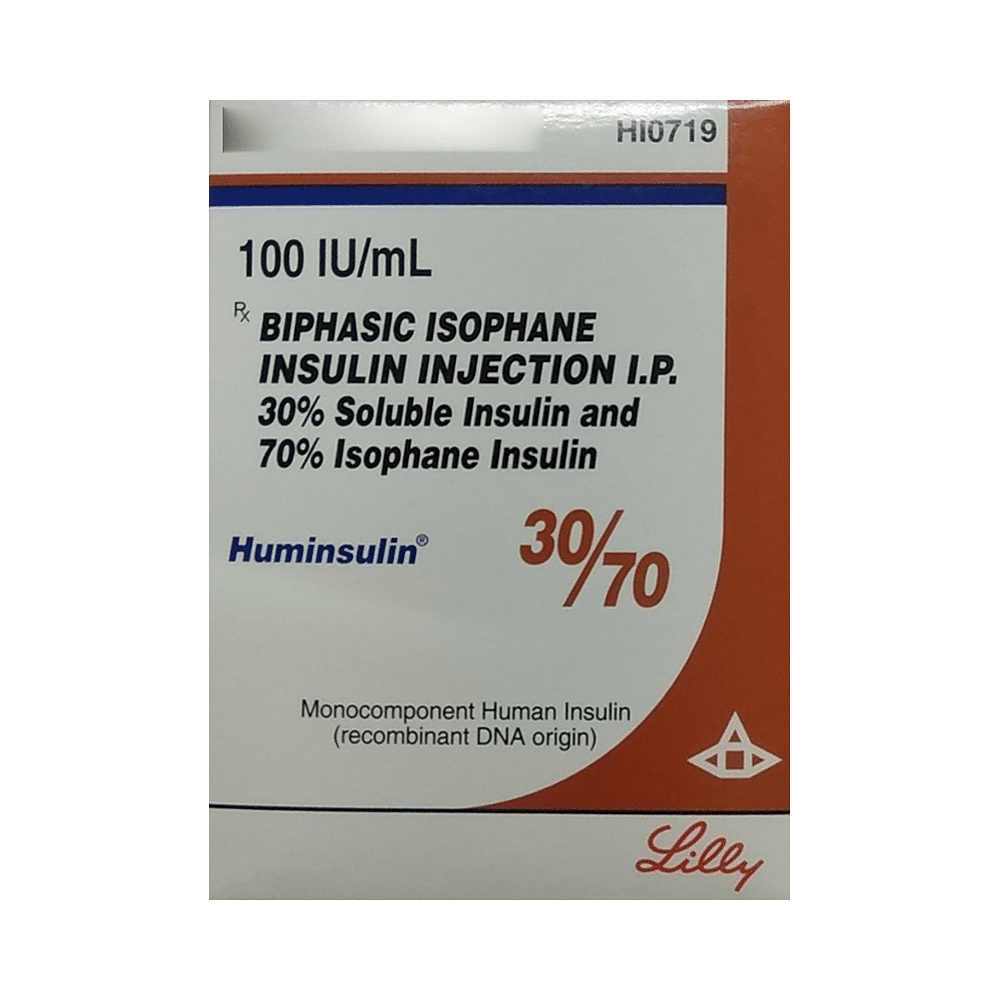
Mixtard 30 Flexpen 100iu/ml
Manufacturer
Novo Nordisk India Pvt Ltd
Salt Composition
Soluble Insulin (30%) + Insulin Isophane (70%)
Key Information
Short Description
Mixtard 30 Flexpen (3ml Each) is a combination of two medicines, an intermediate-acting and a short-acting type of insulin, used to treat diabetes mellitus (type 1 and 2) in adults and children.
Dosage Form
Suspension for Injection
Introduction
Mixtard 30 Flexpen (3ml Each) is a combination of two medicines, an intermediate-acting and a short-acting type of insulin. It is used in the treatment of diabetes mellitus (type 1 and 2) to improve blood sugar control both in adults and children. It helps maintain the blood sugar levels in diabetic patients.
Directions for Use
Your doctor or nurse will give you this medicine. Kindly do not self-administer.
How it works
Insulin Isophane has a prolonged duration of action while human insulin has a fast onset of action. Together, they ensure rapid and consistent sugar control by facilitating reuptake of sugar in muscle and fat cells and suppressing the production of sugar in the liver.
Quick Tips
Take it 15 minutes before a meal or within 20 minutes after starting a meal. Injection below the skin of the abdomen results in faster absorption than other injection sites such as skin of the upper arms, thighs, or buttocks. After injection, the site of injection should not be massaged. Injection sites must be rotated to prevent hard lumps from developing at one site. Change to another type or brand of insulin should be done under strict medical supervision as it may require a change in dosage.
Related Medicines

Human Mixtard 100iu/ml Injection

Huminsulin 30/70 Injection 100iu/ml

Mixtard 30 HM Penfill 100iu/ml (3ml)

Mixtard 30 HM Penfill 100iu/ml

Huminsulin 30/70 Cartridge 100iu/ml

Wosulin 30/70 Suspension for Injection 100IU/ml

Mixtard 30 Flexpen (3ml Each)
Frequently asked questions
Can I drink alcohol while taking Mixtard 30 Flexpen (3ml Each)?
No, it is not recommended to consume alcohol while using Mixtard 30 Flexpen (3ml Each). Alcohol may lower blood sugar levels and lead to hypoglycemia.
What are the instructions for storage and disposal of Mixtard 30 Flexpen (3ml Each)?
Store Mixtard 30 Flexpen (3ml Each) in its original container or packaging, tightly closed. Follow the storage instructions on the product label. Do not use expired medication. Dispose of unused medication following your local guidelines and do not allow pets, children, or others to access it.
Which is the best area to inject Mixtard 30 Flexpen (3ml Each)?
Mixtard 30 Flexpen (3ml Each) should be injected subcutaneously under the skin. The preferred injection sites include your abdomen, upper thigh, upper arm, or buttock.
What are the symptoms of high blood sugar?
Symptoms of high blood sugar can include frequent urination, increased thirst, fatigue, nausea, vomiting, shortness of breath, stomach pain, fruity-smelling breath, dry mouth, and a rapid heartbeat.


